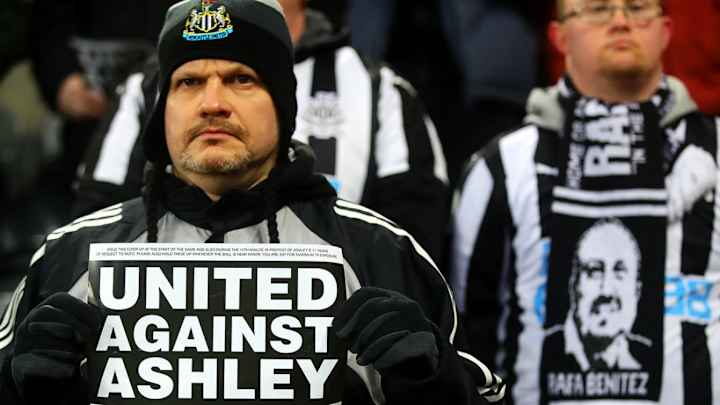After a Summer of Departures, Mike Ashley's Actions May Ruin Newcastle's Season

Last season, Newcastle United had a hugely popular manager, a Champions League winner with a record of success. He left.
Last season, Newcastle United had a hugely popular target man, a Venezuelan frontrunner who seemed ideal for his manager’s style. He left.
Last season, Newcastle United had a forward who, after four and a half years of largely ordinary performances, scored nine goals in the final three months of the season. He left.
The three cases aren’t identical. The $36.5 million fee Leicester City paid for Ayoze Perez probably was too good to turn down. But to fail to persuade Rafa Benitez to sign a new contract, in part because of a refusal to exercise an option permanently to sign Salomón Rondón, a proven performer, for the bargain price of $19.5 million just because he was older than 28, an arbitrary threshold the club had drawn up by the owner Mike Ashley, still seems bizarre. Little wonder that the constant frustration felt by fans toward the owners seems to have reached a new pitch.
Those three departures seem to sum up everything that is wrong at Newcastle, the sacrifice of football logic on the altar of buy-cheap-sell-high. That’s a tactic that has made Ashley a billionaire through his ownership of Sports Direct among various other businesses, but it’s rarely one that’s worked in football. Ashley’s policy at Newcastle seems to be nothing more than to keep the club up, keep the finances stable and use the platform to promote his business but his parsimony comes with the risk of relegation—and Newcastle did go down under him in both 2009 and 2016.
It’s worth noting in passing, that Sports Direct shares fell sharply this week after remarkably forthright criticism of the chaotic way in which its results were announced. “This company is an embarrassment to UK corporate governance,” said the shareholder advisory firm Pirc. “Years of ineffective chairing seem to have taken their toll, and the company veers from one mistake to the next.” Ashley, who is nothing if not cunning, gave a rare interview to the Daily Mail on the day the results were announced, helping to disguise the information on various news aggregators.
Benitez was replaced by Steve Bruce, who by various accounts was some way from being Ashley’s first choice. Bruce was born in Corbridge, to the west of the city, then grew up in Wallsend where he played for the famous Boys Club that also produced, among others, Peter Beardsley, Michael Carrick and Alan Shearer. He is a lifelong Newcastle fan, and there seems almost something cruel that his first professional involvement with the club should come in a way that means fans will see him as a stooge for the Ashley regime. Shearer revealed that he told his friend not to take the job. Bruce’s managerial career, which has taken in 10 previous clubs including Newcastle’s arch-rivals Sunderland, is full of flickers of promise that faded away.
There was even talk that there might be a boycott of Newcastle’s first game of the season, against Arsenal, by fans protesting against Ashley. Yet against that background there came the unexpected and uncharacteristic signing of the Brazilian forward Joelinton from Hoffenheim for a club-record fee believed to be around $50 million. That may ease some of the negativity around the club, although it is placing absurd pressure on a 22-year-old who has never played in England to expect him to replicate what Rondón and Perez gave Newcastle.
With dissent sure to bubble up if results show any sign of going awry, there’s a widespread expectation that Newcastle will struggle this season. With the league’s middle class perhaps more established than it’s been for some time, the other sides likely to be scrapping against relegation are fairly well-defined. There’s the three promoted sides, of course: neither Norwich City nor Sheffield United has a large budget while Aston Villa’s spending is worryingly reminiscent of Fulham’s last season. Then there’s Brighton, who finished fourth bottom last season before replacing Chris Hughton with the promising but unproven Graham Potter.
Other than that, there are always questions as to how long Bournemouth and Burnley can carry defying gravity, while Crystal Palace may struggle if Wilfried Zaha is sold and not replaced. Southampton conceivably could get dragged into it, although its improvement last season under Ralph Hasenhuttl suggests it should be comfortable enough.
But Newcastle is the established Premier League side that looks in danger, largely because it feels the tide of discord could capsize it at any moment.
Last season, Newcastle seemed prime for improvement with well-targeted investment. For the first time in a long time, there was hope. It left.

An accomplished author of multiple books, Jonathan Wilson is one of the world’s preeminent minds on soccer tactics and history.